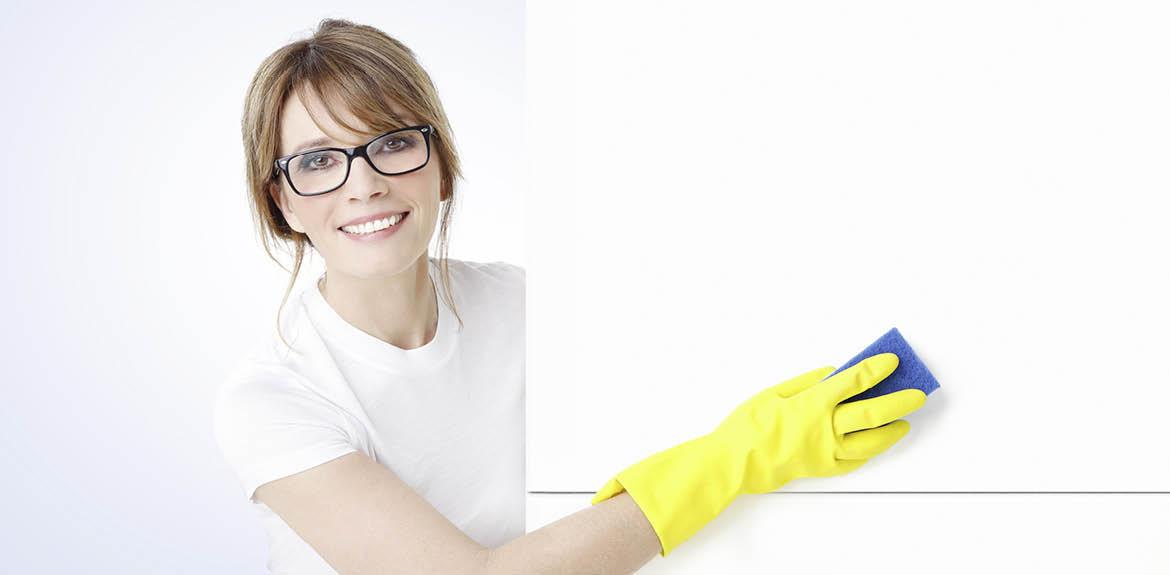Caring for your door | LEBOdoors

Door maintenance: LEBO-easy tips and tricks
for clean doors at home
Your door is exposed to many fingers every day. The good news: In order for LEBO doors to retain their beautiful character, they require little maintenance. With the correct treatment of the surfaces (wood, glass, there are differences. Because every door is different and comes to you just the way you want it. Take a look right now, which maintenance technique is ideal for your door Everything is right from the start, and you are guaranteed less work cleaning, but more importantly, you ensure that your door stays as beautiful as it is for a long time.
Taking care of wood and CPL doors
The best cleaning tip for wood and CPL doors is easy: Never use aggressive cleaning agents. A soft cloth moistened with clean water is ideal for a good clean. It removes fingerprints or stains gently and easily. Caution: Cleaning agents with scouring powder and solvents can damage your door. Even better: Don't use any. Water is all you need. Your door will thank you - for a very, very long time.
If your door is made from wood, be aware: Wood is a natural resource. Deviations in colour and structure are a sign of its natural authenticity and absolutely desirable
If your door gets scratches over time: We are happy to advise you further at LEBO. Simply contact us. We are ready to help you. It is very important to us that you are completely satisfied, long after you make your purchase - with your door and with LEBO.
Cleaning lacquer doors
Maintaining glass doors and glazings
When you clean your interior glass, it is enough to clean the surface with warm water. For this, use a sponge or a soft, lint-free cloth. Clean a large area, rather than pointedly.
If there are any residues, e.g. of fingerprints, you can also use commercial glass cleaners (foam cleaner). Please do not use any abrasive, corrosive, acid-containing or alkaline cleaning agents, since these will attack the glass surface and also may cause scratches. Excessive water can be wiped dry with a microfiber cloth. When water acts on the glass surface for an extended period, stubborn lime residue may form.
For LSG doors, observe that the edge composite must not get into contact with water, since this may cause moisture and cleaning agent to enter the laminate.
For satined and laser-treated surfaces
To prevent abrasion of the surface structure, you should not apply too much pressure here. To avoid clouding, rub your door dry generously with a microfiber cloth. Do not use paper or cellulose cloths, since they are too abrasive.
For screen-print glasses
Screen-printed surfaces are softer than the pure glass surface and therefore more sensitive against mechanical cleaning agents. They also must not be cleaned with acids since they may attack the print pattern.
Attention
Please do not use any scratching tools, razor blades or scrapers. They can leave visible and irreparable scratches on the surface.